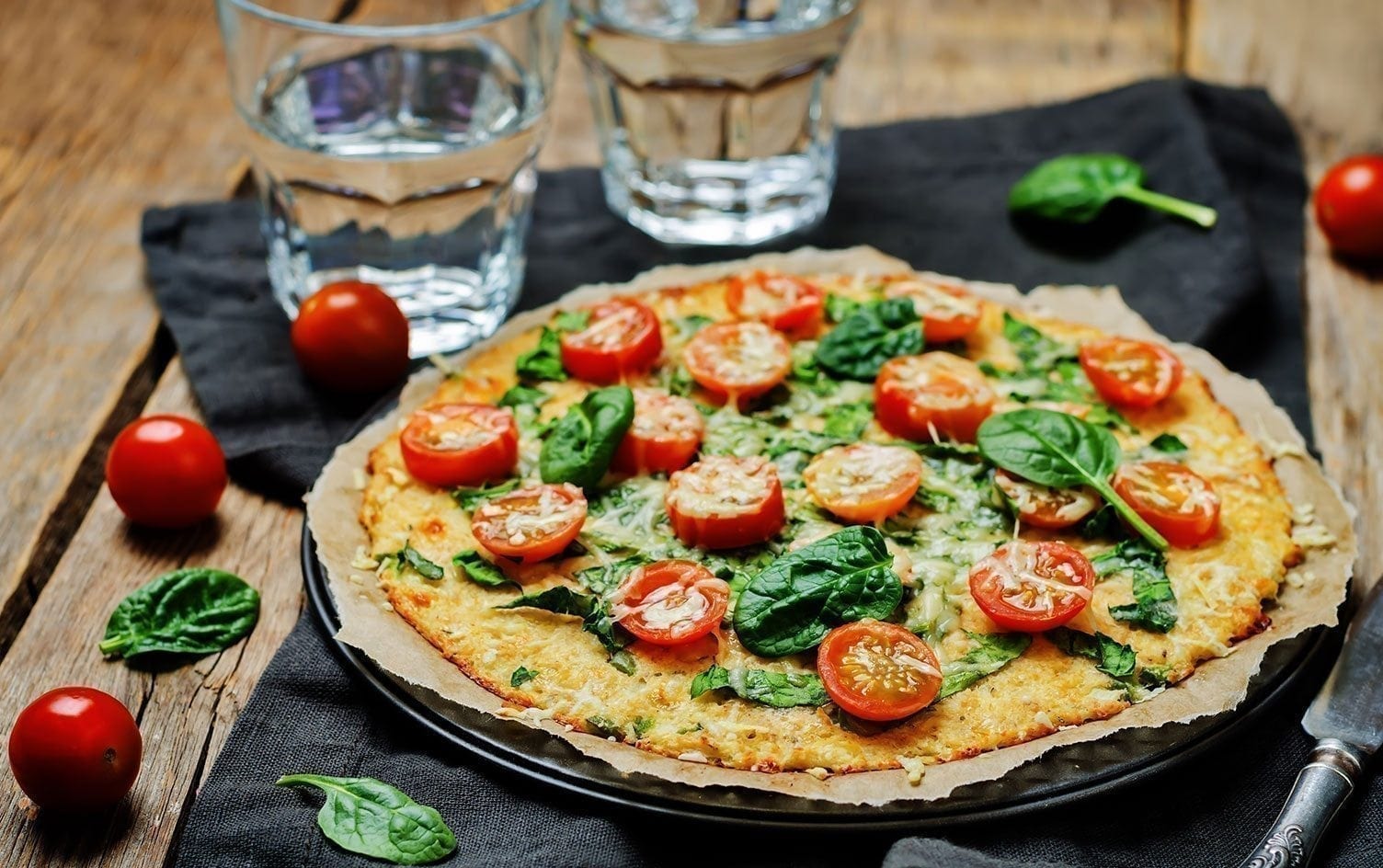Calorie counts have been stirring up a public brouhaha. Recently, a federal rule that mandated all chain restaurants post numeric calorie counts on their menus by this May was delayed until 2018 so that the government, public health experts, businesses and trade groups can continue their debate.
Studies about the efficacy of numeric calorie counts are mixed, and some advocate for a more simplified message like how much physical activity would be required to burn off that burger. A study from the University of Pennsylvania found a traffic-signal code, a three-color coding with green for low calorie, yellow for medium and red for high calorie, led to a 60-calorie drop in what people ordered. This simple trick would account for about a six pound weight loss over a year. The results were even more dramatic when researchers divided their findings by people’s weight with obese diners cutting 150 calories.
READ MORE > WHAT A NUTRITIOUS BREAKFAST LOOKS LIKE AT 300, 400 & 500 CALORIES [INFOGRAPHIC]
While the policy debate continues, here are a few lower calorie, green-light options for some of those high-calorie, red-light favorites:
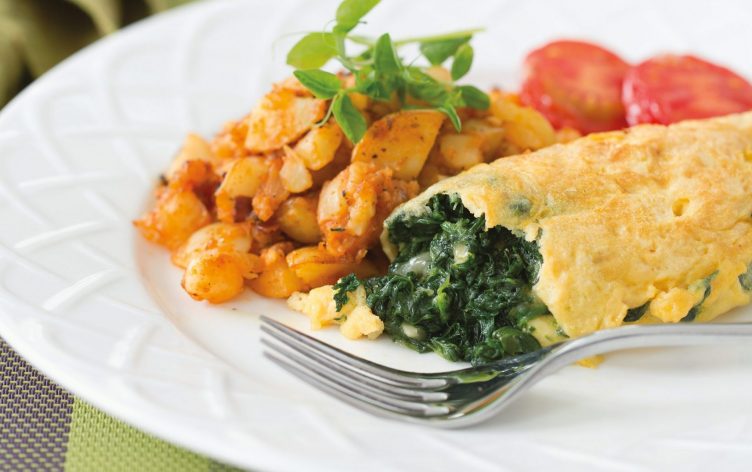
Red Light: Breakfast sandwich with bacon, egg, cheese on a bagel
Green Light: Veggie omelet
“The healthiest part of this is the egg,” says Laura Ligos, RD and nutrition expert at The Sassy Dietitian. “But breakfast sandwiches are typically high in sodium and calories. Swap it for a veggie omelet and choose a side of fruit instead of breakfast potatoes.”
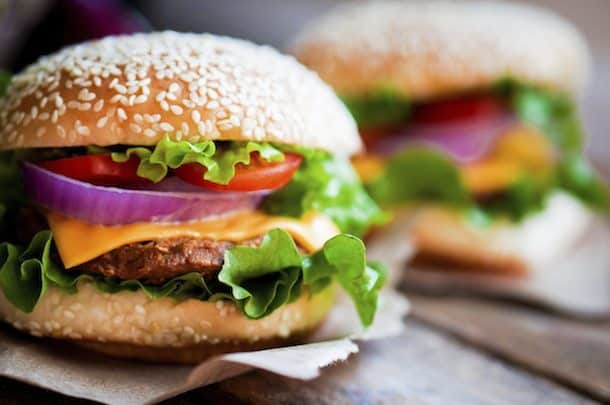
Red Light: Cheeseburger and fries
Green Light: Burger with a lettuce wrap and side salad
A cheeseburger can be a 500–1,000 calorie bomb that’s high in saturated fat. Exchanging the bun for a lettuce wrap, and the fries for a side salad, lowers the fat content and boosts your vegetable intake. Here are five more tips for building a healthier burger.
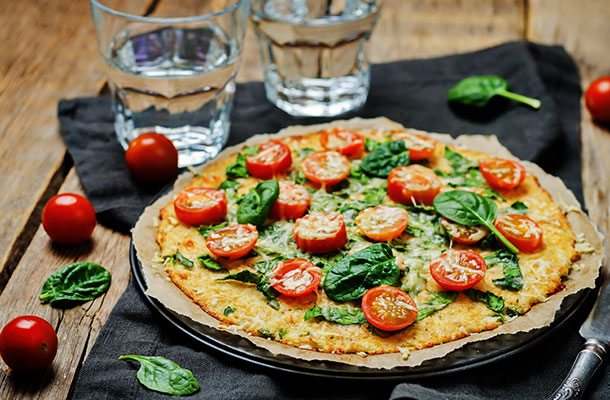
Red Light: Pizza
Green Light: Cauliflower pizza with veggie toppings
“You can make it a healthy meal with a cauliflower crust loaded with veggies. You’ll have a nutrient dense, lower calorie pizza,” says Ligos.
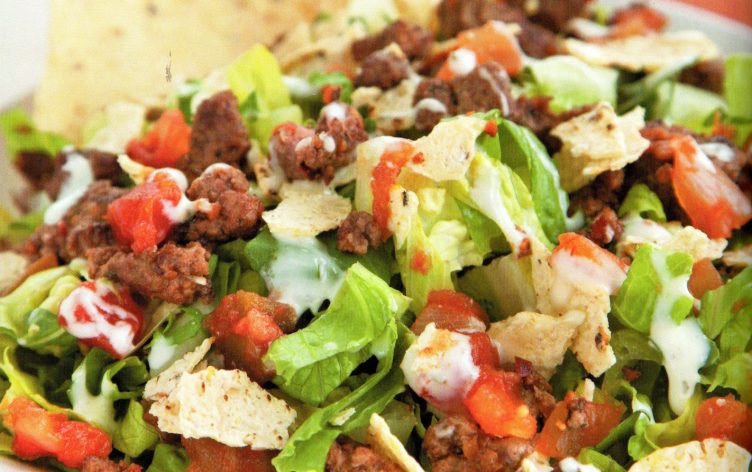
Red Light: Burrito with rice, refried beans, chips and salsa
Green Light: Taco salad
“Burritos are huge, and after you eat one, it just sits in your stomach,” says Ligos. “It’s so dense in carbs with the beans, rice, tortilla and usually some chips and salsa on the side. It’s high in calories and there are minimal vegetables.” Instead, put it in salad form, and you lower the carb count and increase your vegetable intake.
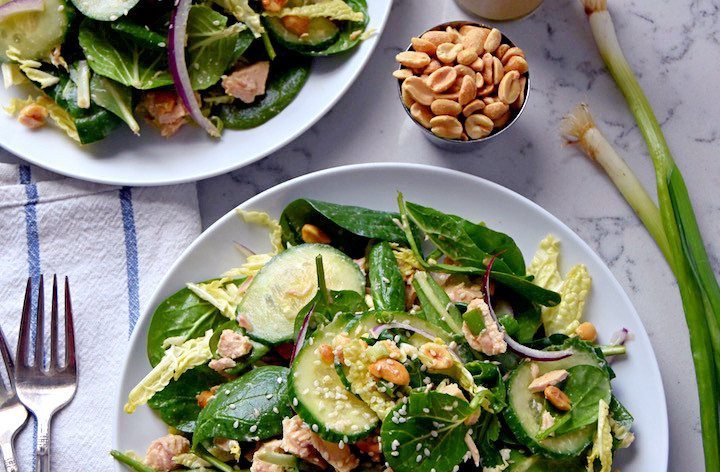
Red Light: Tuna melt with chips
Green Light: Tuna salad with peanut dressing
“A tuna melt is usually loaded with saturated fat, you’re not getting any vegetables and chips are fried and high in sodium,” says Ligos. “Fish is so good for your heart, and it’s a good source of protein, so try raw or seared tuna on a salad instead.”
